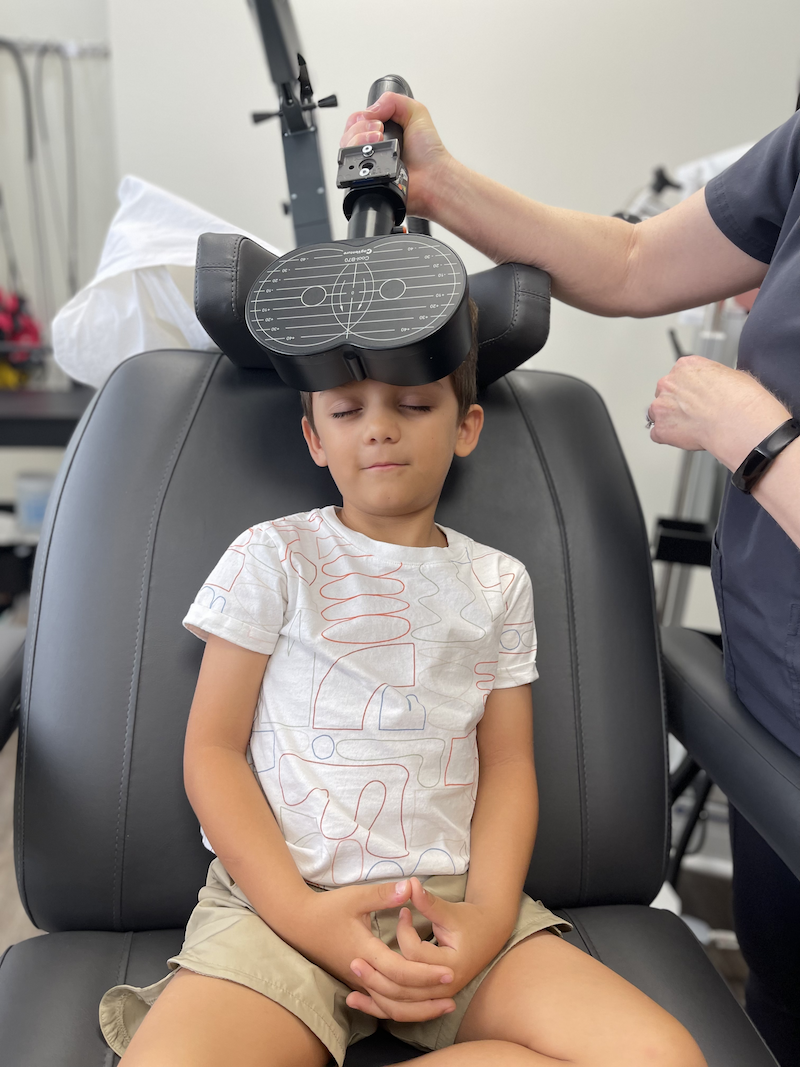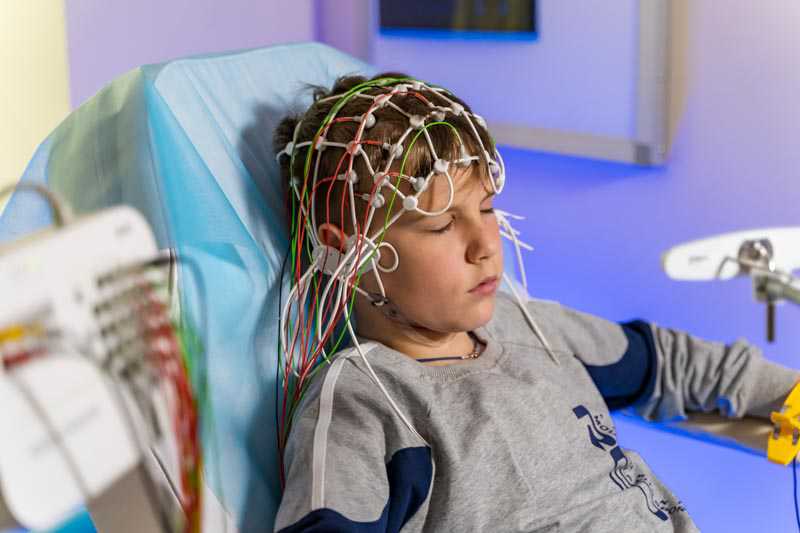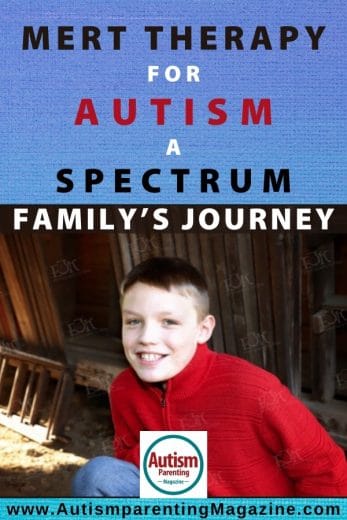MeRT Treatment for Autism Can Help Unlock Your Child’s Potential
MeRT (Magnetic e-Resonance Therapy) treatment for autism is a non-invasive, drug-free, and gentle treatment that has shown remarkable results in children with ASD.
Improvements have included better communication, retention, learning, and greater independence in life.
When you’re the parent or caregiver of a child with autism spectrum disorder (ASD), you’ll do everything possible to help them achieve their full potential. Research has shown that early, high-quality intervention is vital to help children diagnosed with ASD.
The MeRT for Autism treatment protocol is a customized use of transcranial magnetic stimulation (TMS).
TMS (Transcranial Magnetic Stimulation) is an FDA Approved treatment for some types of depression and OCD. It uses an FDA Approved magnet which is brought near the patients head and the magnetic field stimulates conductivity in the brain. TMS was first FDA approved in 2008 and has been widely used in the USA for over 15 years.
MeRT is different to normal TMS because we start with a comprehensive diagnostic testing of your child’s brain. These advanced diagnostics, using a qEEG (quantitative electroencephalogram), pinpoint areas where the brain waves are not operating in sync with the rest of the brain. A scientific analysis of the patients brain patterns is completed before any treatment is started. Then the magnetic stimulation is exactly customized to the areas and wavelengths that are going to stimulate those parts of the brain that need it.
The result is that MeRT can create dramatic changes in mental function. (Results do vary from patient to patient).
We have found that MeRT treatment can open up a child (or adult) who is on the spectrum in their ability to receive and process information. So MeRT treatment can in some cases make other treatments such as ABA more effective and move faster.
This gentle, effective treatment can help your child break through to a new level of ability — and higher quality of life.

Call 480-448-2916 for more information and/or to schedule a free, no-obligation consultation. You can also fill out the form at the bottom of this page and we will contact you.
. . . . .
“My daughter was non-verbal before MeRT. We had MeRT August 14-September 8, 2023. She started repeating what I said (in Spanish) yesterday! I can only credit MeRT for this!” – Laura G
. . . . .
“We see better speech, more patience, better play time with her younger sister, and better understanding and follow-up on directions given.” – Daniel H.
. . . . .
“For us MERT was life changing! Our gains have continued over a year later! We look forward to doing it again! My son is less anxious, happy disposition, less rigidity, sensory issues and more language.” – Roe L.
Highly recommend! Dr.Patel, Lisa & Melinda were all amazing! Our son, who has autism has highly aggressive behaviors, obsessive behaviors & anxiety. The sessions helped minimize all of the things that we were hopeful for! It was amazing to see the difference in the EEGs that were given every 10 sessions. We would do it again in a heartbeat! Thank you to the team for all of your help and understanding on our journey – HW, July 2024
Autism Spectrum Disorder Affects Every Child Differently
When a child is diagnosed with autism, it’s not a one-size-fits-all diagnosis. The intensity of ASD symptoms can vary from mild to severe and affect each child differently. One child may have more difficulty communicating than another, have greater sensory sensitivity, or have more intense repetitive behaviors.
While these are just a few examples, you can see that what works for one child may not work for another. That’s because every brain is unique — and that’s what makes MeRT such a breakthrough. MeRT addresses the individual nature of autism by focusing on your child’s unique brainwave activity.
First, we begin with a comprehensive analysis of their brainwave patterns to determine where they are out of sync. We create a customized treatment program to regulate brainwaves and enhance brain function.
This often results in improved communication, social skills, and independence. And that can lead to a far better quality of life for your child — and you!


Multiple Independent Research Studies find rTMS effective in symptom improvement for Autism.
As MeRT is EEG-guided rTMS it is even more tailored to each individual based on their brain scans, making it even more effective! Here are some of the more recent studies which all found rTMS to be effective in treating Autism:
-
- A 2022 study on the effectiveness of rTMS in the treatment of autism spectrum disorder (ASD) symptoms: “This study presents evidence on the efficacy and safety of α-rTMS in improving ASD symptoms, quality of life, and comorbid sleep troubles in children.”
- A 2019 study found that rTMS may improve brain activity and behavior in children with ASD: “In conclusion, the study showed that treatment with prefrontal low‐frequency rTMS improved brain functioning and behavioral symptoms in autism. rTMS might be a better alternative for patients with ASD who are not suitable for the psychopharmacological treatments.”
- A 2016 report concluded that MeRT is a promising therapeutic option to treat ASD with minimal side effects: “Given our understanding of the EEG and the consistent abnormalities in the electrophysiology of children with ASD, we would suggest that MRT is an appropriate therapeutic option to further pursue.”
- A 2020 review of 13 clinical trials found that rTMS appears to be safe and to improve many ASD symptoms: “Recent reviews of the literature suggest that TMS is safe and effective when used in ASD.”
“Before doing MeRT Therapy, I was very skeptical because I didn’t know how it would affect my son. We found out he was diagnosed with ASD at the age of 3. He was starting to regress severely. At the age of 5, he wouldn’t pay attention to his surroundings, wouldn’t react to his name being called, had no sense of awareness, no eye contact, became completely non-verbal, and had minor symptoms of ADHD.
My husband and I did a lot of research before starting and were really nervous to start. However, we can now say that we are glad we took that leap of faith. Our son is now making eye contact when we speak with him, has gotten his first haircut without crying, is starting to be verbal by saying words, repeating words back from his tablet, humming and slightly singing, and it truly feels good to hear his voice again. His speech therapist says she is seeing much more progress compared to before and behavior has gotten way better in school.” – Parent of MeRT Patient
How MeRT Works
MeRT is designed to balance brain activity. Using advanced diagnostics, scientific analysis, and personalized treatment protocols, we identify and nurture specific areas of your child’s brain.
MeRT treatment begins with a quick 10-minute brainwave recording. This is the qEEG, coupled with an electrocardiogram (ECG), to measure your brainwave frequencies, heart rate, and the relationship between the brain and heart.
Next, your clinician re-processes the data via a database with more than 30,000 other brainwave recordings. This is how your unique brain image is translated into a report that provides insight via comparison and matching. At this point, it can be determined if some areas of your brain are not functioning as they should. When this happens, a custom treatment plan is created. The third step is personalized brainwave stimulation. Your unique protocol is based on your brainwave recordings and is delivered via MeRT. Everyone’s protocol may vary, but MeRT sessions can occur as often as daily. Typically, 15-30 minute sessions five days per week for 4-6 weeks is the most common protocol.

After ten sessions are complete, your clinician performs a brainwave recording re-assessment to assess for positive changes in brain activity and for any updates to the treatment protocol. A third 10-minute brainwave recording session will be required after completing four weeks of therapy to again reassess for positive changes in brain activity. Combined with questionnaires and assessments, we will work together to gauge the effectiveness of the treatment and determine if additional treatment sessions are needed.
A recent review was done, focused on published research studies using TMS to treat ASD between 2018 and 2023. These were systematically reviewed to study characteristics, specific parameters of TMS, localization techniques and stimulus targets, behavioral outcomes, and neuroimage biomarker changes. It was extensive and you can see the full study HERE.
This study found in its conclusion:
“Recent findings generally indicate that TMS has positive effects on stereotypical behavior, repetitive behavior, verbal and social aspects of ASD, leading to overall improvement across all scale scores post-intervention.”


“You know, I’m so glad we went to the Brain Treatment Center. Now I can talk.” – Frankie
* Results are based on active and strict observation of our regimens. Results may vary based on the individual user and are not guaranteed.
A Father Tells His MeRT Story
In the third week, something happened. The family was driving around sightseeing when they realized that they were getting lost in the California desert. Mary and Frank began to argue, and right in the midst of it, the moment they had waited six years for finally came. “I remember he said a seven-word sentence basically to the effect of ‘I want you two to stop fighting.’ And it shocked me so much that I almost stopped breathing,” Frank recounts. “I looked at my wife and said ‘Do you realize what just happened? He just said a seven-word sentence.’ I had tears in my eyes, and I was happy at the same time. He was so upset that it pushed these words through.”
From there, Frankie’s progress snowballed. They returned home after only a month, but the difference between the child who arrived in California and the one who left was striking. They had taken a video of Frankie on the plane when they started the journey, “and he’s just making baby babble,” Frank says.
“We have another video of him on the plane coming back. And he looks out the window and says, ‘Goodbye California, see you soon.’ This was a nonverbal kid, 30 days earlier. And his feet are flat on the ground.”
Doctors said Frankie would continue to improve even without regular MeRT albeit a bit slower. Today, he is 11 years old, verbal, and attends a public school. He tells Frank stories about times when he wanted to speak but couldn’t.
-Excerpted from an article in Autism Parenting Magazine
More MeRT for Autism Testimonials
“We have just finished our first round of Mert therapy…
Gains so far – our 5-year old girl who already has great language capabilities but would often not respond at all to us (low receptivity), started becoming very outspoken about what is on her mind and giving us waaaay more insight into her thought processes and overall just way more responsive. I feel like I’m truly getting to know her for the first time. She has been able to have more patience (previously could not wait for us to finish a conversation to ask her question and would end up exploding), now she counts while waiting for her turn. She also is more easily taking turns with toys when sharing with friends and siblings. Her rigidity of thinking is very much down. She can now go with the flow much more and can be reasoned with if things don’t happen the same way as before or as she expected. She’s less picky with food, for example would previously eat a burger in each of its individual components but now eats it ‘combined’. There’s a heap more but these are the main ones. The only tricky thing has been increased agitation and minor hitting but that has since faded to zero. I think she had a lot of brain activity increase that might have caused her to feel overwhelmed temporarily. Also, should say in addition to us parents, her Nana and uncles were taken aback by her responsiveness to them after our time away for the therapy. She would never say hello or goodbye and now says it all and engaged in back and forth conversation with them too.
“Before doing MeRT Therapy, I was very skeptical because I didn’t know how it would affect my son. We found out he was diagnosed with ASD at the age of 3. He was starting to regress severely. At the age of 5, he wouldn’t pay attention to his surroundings, wouldn’t react to his name being called, had no sense of awareness, no eye contact, became completely non-verbal, and had minor symptoms of ADHD.
My husband and I did a lot of research before starting and were really nervous to start. However, we can now say that we are glad we took that leap of faith. Our son is now making eye contact when we speak with him, has gotten his first haircut without crying, is starting to be verbal by saying words, repeating words back from his tablet, humming and slightly singing, and it truly feels good to hear his voice again. His speech therapist says she is seeing much more progress compared to before and behavior has gotten way better in school.”
“We did 6 weeks of MERT and last session finished last week.
Major Gains we have seen
– speech would be the biggest part, trying to describe things and trying to form sentences, his therapist are shocked how much he is talking now
– sleep, my child slept well prior to Mert, but lots of flipping around middle of the night, now no more flipping, sleeps through the night for 10-12 hours (wow, I know).
– hyperactivity has reduced.
– playing more games, stays in the same game for longer period of time.
– trying more varieties of food, will ask to try new food.
Good luck everyone”

Questions? Call Our New Patient Coordinator for a Free Consultation
We know it may be nerve-racking to try another treatment for Autism Spectrum Disorder — particularly when past treatments haven’t helped as you thought they would. That’s why our New Patient Coordinator is here. She can answer all your questions so you can make the most informed decision.
She’ll explain our treatment protocols, fees, insurance, and more. She can also schedule you for a consultation with the doctor.
From there, we can determine if your child may benefit from MeRT treatment, and you can decide if you would like to move forward.













